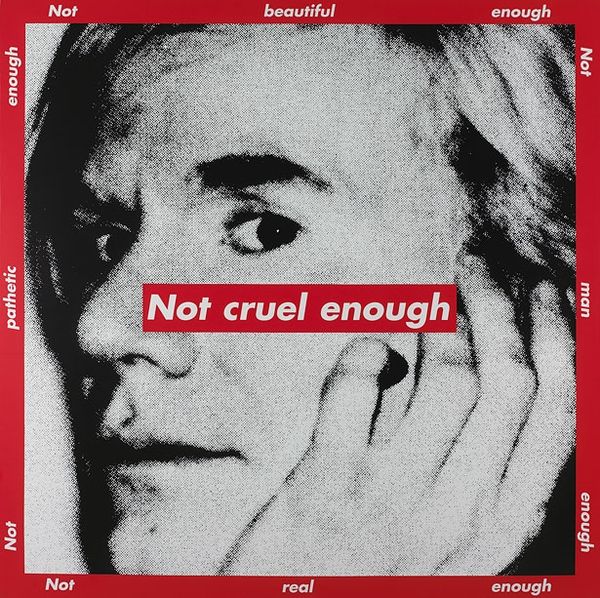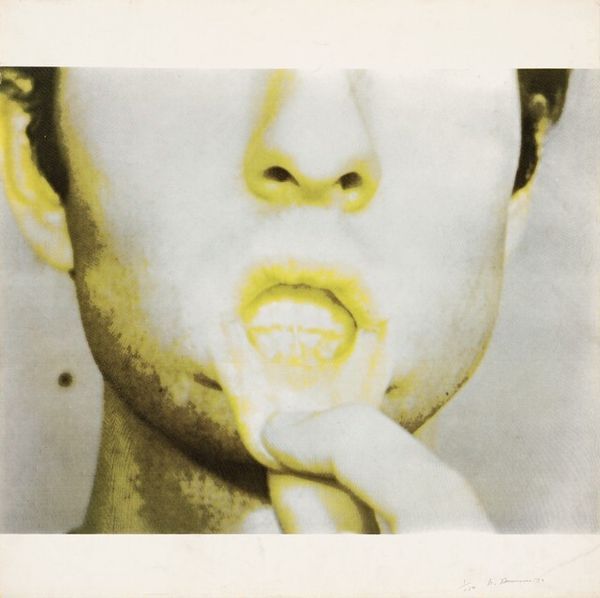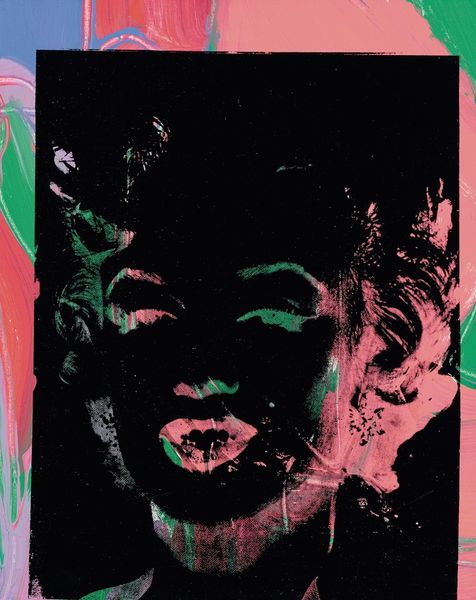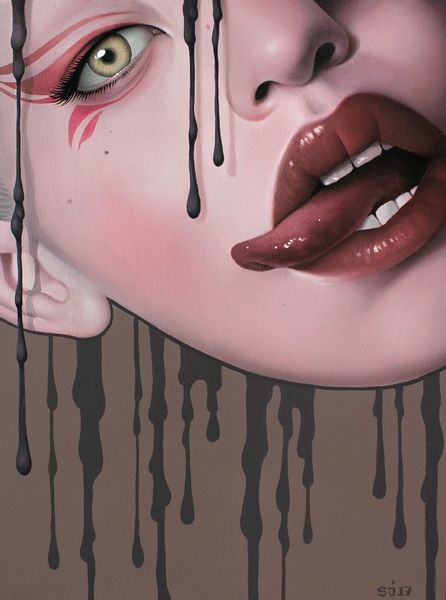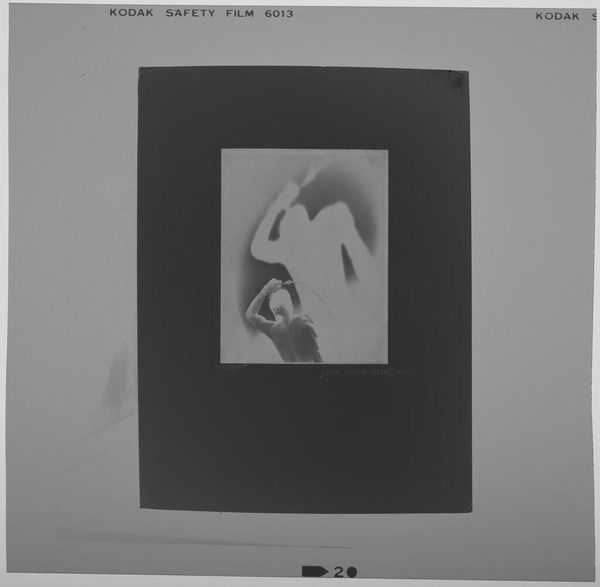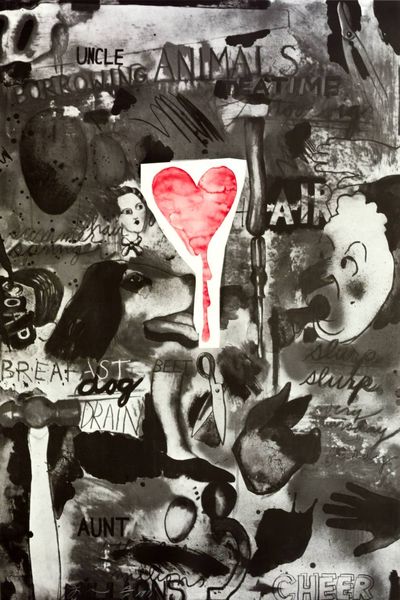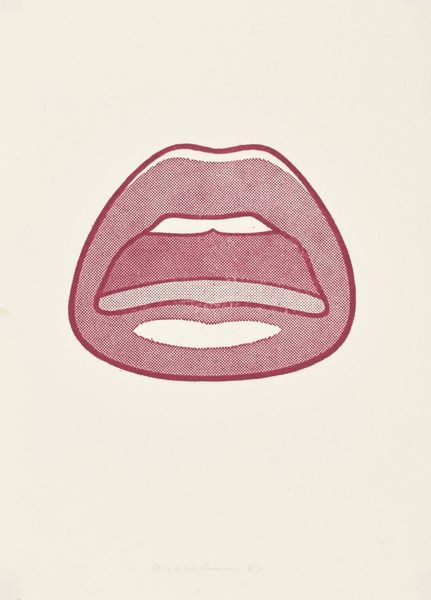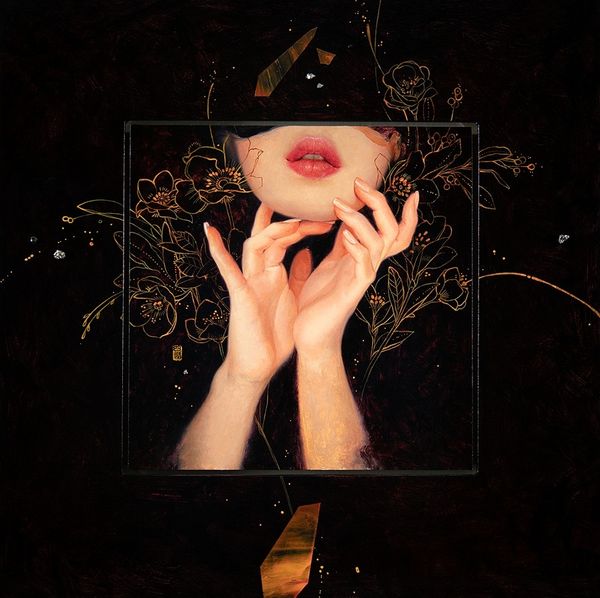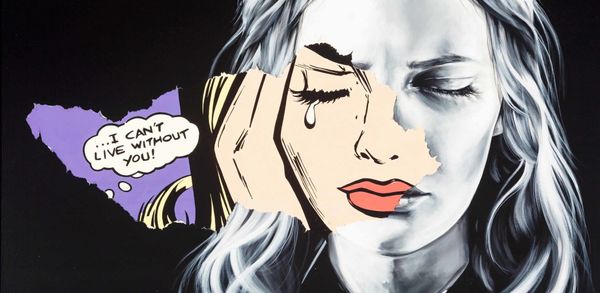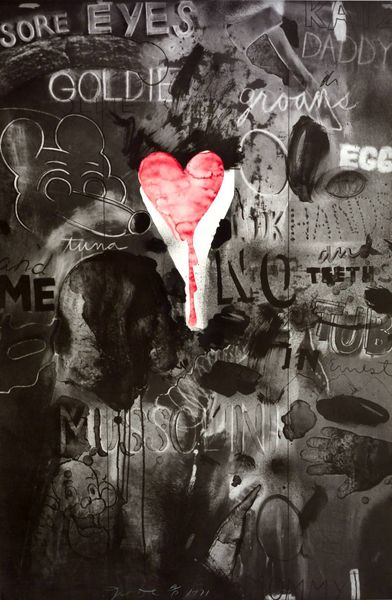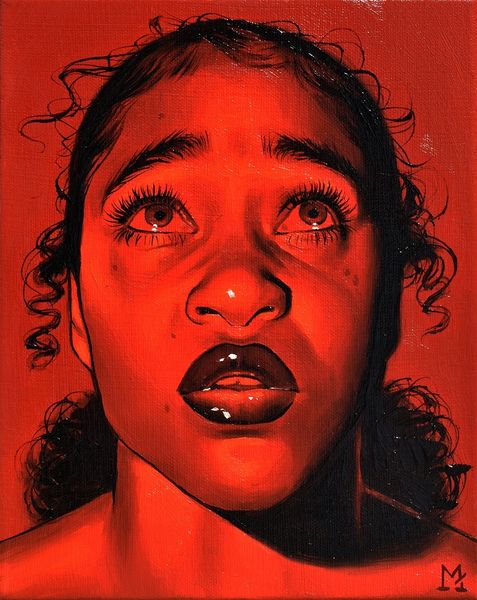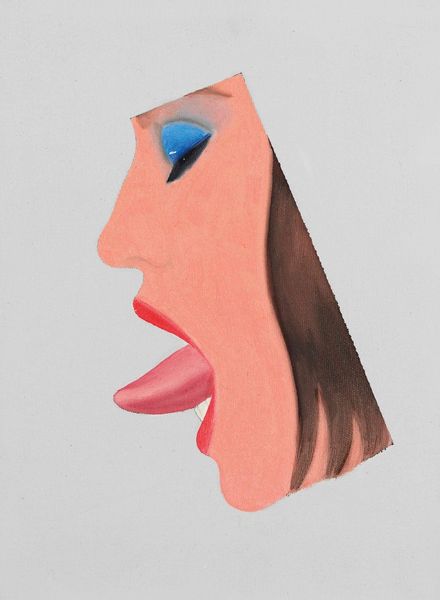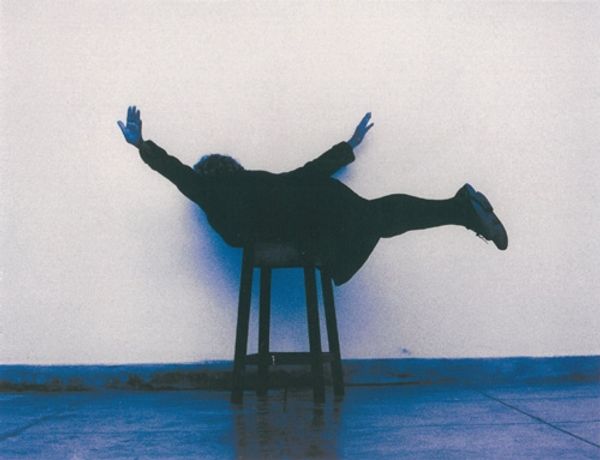
mixed-media, photography, poster
pictures-generation
mixed-media
contemporary
conceptual-art
appropriation
poster design
text
photography
pop-art
poster
identity-politics
poster
Copyright: Barbara Kruger,Fair Use
Editor: Here we have a mixed-media piece, perhaps a poster, by Barbara Kruger entitled "Untitled (Not stupid enough)". The stark black and white image combined with the aggressive red text really jumps out. I find the cropping disorienting, but also that it contributes to an intimate encounter. What do you see in this piece from a historical perspective? Curator: Well, first, note Kruger's appropriation of images, a key Conceptual and Pop Art strategy. She's pulling from pre-existing visual language, in this case, potentially from advertising or mass media, then subverting it. Considering its public role, the text acts almost as institutional critique, exposing how societal pressures impose contradictory standards – not skinny enough, not good enough, and now, not stupid enough. How do you see those "enoughs" functioning around the edges of the piece? Editor: They feel like refrains, these repeated critiques constantly cycling, highlighting how these pressures are relentless and unavoidable. But why focus on something negative like stupidity? Curator: Exactly, it's loaded, right? What is the historical context around who gets labelled as "stupid" and why? Kruger makes us question the power dynamics behind this judgement. In effect, Kruger is using strategies from graphic design, so linked to capitalism, against itself, as an intervention in our image saturated world. To your eye, does that red text and design seem connected to any movements in particular? Editor: I see echoes of Soviet constructivism in her bold use of text and the photomontage style! Curator: Precisely. She understood the visual vocabulary of power and how to repurpose it. It seems Kruger prompts questions about not just advertising but also power structures and identities in society. Editor: This was fascinating; it highlights the influence that politics, art history, and design can have on identity.
Comments
No comments
Be the first to comment and join the conversation on the ultimate creative platform.
